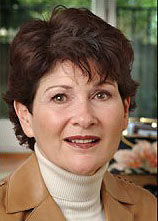How To Be a Better Communicator with Dr. Sandra Folk
We all want to be understood and to effectively get our point across, no matter what medium we’re using. Dr. Sandra Folk shares her expertise and framework for making that happen no matter who you’re communicating with!
Listen to us On
About the Episode
LifeBlood: We talked about how to be a better communicator, how Sandra got started her career as a writing coach where she developed a program to help corporate leaders get better at writing remotely.
We discussed how she developed her framework of the Four Pillars of Effective Communication, and how each is integral to your success, how they can be used by anyone who is interested in becoming a better communicator.
We discussed the challenges of public speaking and not wanting to say the wrong thing, how difficult it can be for people whom English is a second language to feel good about their messaging, and how cross-generational communication can be intimidating and what to do about it.
We talked about how the key to all of it is to set a goal and to work towards achieving it by practicing with Dr. Sandra Folk, high-performance business coach, helping corporate executives become better communicators so they can get their message across no matter what the medium and no matter who they’re communicating with.
Listen to learn why the age-old advice of listen more, talk less is as important today as it’s ever been!
For the Difference Making Tip, scan ahead to 22:16!
You can learn more about Sandra at DrSandraFolk.com, Facebook, Twitter, Instagram, YouTube and LinkedIn.
Thanks, as always for listening! If you got some value and enjoyed the show, please leave us a review wherever you listen and subscribe as well.
You can learn more about us at MoneyAlignmentAcademy.com, Twitter, LinkedIn, Instagram, Pinterest, YouTube and Facebook or you’d like to be a guest on the show, contact George at [email protected].

George Grombacher
Lifeblood Host

Dr. Sandra Folk
Guest
More Episodes
Where Does Money Come From? How to Find Meaningful Work
Where does money come from? For the vast majority of us, it comes from work. It’s earned. Once you’ve earned and saved money, you can create investment income that can be passive. But for our conversation today, let’s talk about doing meaningful work you enjoy...
Why a Sense of Urgency is Essential for Personal Financial Success
To reach your most important financial goals, you need a sense of urgency. When we’re young, we think we have all the time in the world, so we’re prone to procrastination. As we get older, our sense of urgency develops naturally, but can lead to stress and...
How to Develop Healthy Perspectives on Money and Personal Finance
Healthy perspectives must be cultivated and constantly nurtured. For some, it’s innate. We all know the happy and positive person who nothing seems to bother. For the rest of us, myself included, having a healthy perspective requires work. But it’s work worth...
Do You Have to Be Self Sacrificing to Become Financially Successful?
Is being self sacrificing a requirement for financial success? Yes. There’s a powerful proverb that nicely sums this up, “Blessed are those who plant trees under whose shade they will never sit.” Here’s the good news; you can plant the tree and sit underneath...
Personal Sovereignty and Your Personal Finances
Personal sovereignty means everybody has the right to pursue their desires, and reap the rewards of their efforts. How does money relate to this? Having money doesn’t automatically give this to you, and it’s not required to have it. But being financially secure...
The Four Keys to Accepting Personal Responsibility for Your Finances
The four keys to accepting personal responsibility for your finances. It’s my fault, and no one else’s. All of it. I own the good, the bad, and the ugly. The choices, the thinking, the money. My past, present and future. I own all of it. And so should...
How to Live a Rich Life
What is a rich life? For me, it’s doing the work I want to be doing. Spending time with the people I want to spend time with. And thinking the thoughts I want to think. It’s having the freedom and ability to do those things, and to do them on my terms. Money...
What it Takes to Get Good with Money
How do you get good with money? You could have rich parents. Winning the lottery might help. What about playing in the NFL or NBA? Would any of those help you get good with money? No. They might bring you money, but they won’t help you to get good with...
How to Make Change Happen in Your Financial Life in 11 Steps
If you’re wondering how to make change happen in your financial life, you’re in good company. Americans are behind with our personal finances, and to get on the right track, we need to change our behaviors. We need to learn many of life’s lessons through...
Join the show.
Interested in being on the show? Tell me a little bit more about you and what you’d like to talk about!














